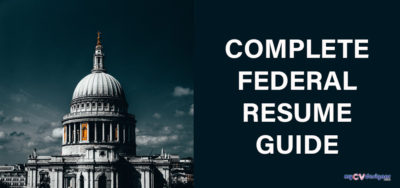The resume is the most basic component of the job search process. All the information that an employer would want about you is available in your resume, which is what makes it so important. Resume writing is an art. Best resume writing services are the artists of this art. But how do you create the perfect resume? What are the things that you should include in each section? Should you hire the best resume writer for writing your resume?
If you are anxiously asking yourself one or more of these questions, don’t worry! In this article, we will answer these questions and more to help you create the ideal resume that would land you your dream job.
What is a resume?
First, let’s be clear on what a resume exactly is, as many people have misconceptions about it. A resume is a summary of all your skills, qualifications, and experiences.
It is different from a CV (or curriculum vitae), which is a comprehensive look at your career. In a CV, you list every single one of your educational and job experiences. But in a resume, you only list the most important and relevant ones. A good rule of thumb to follow is to only include 10 years’ worth of employment in your resume.
Now that we’ve understood this, let’s explore all of the details that we should include in the resume.
The different parts of a resume:
A resume for job searching is divided into different sections so that it is more readable by your potential employers. If you’re creating a resume from scratch, it is important to keep these sections in mind as you design them. You can also use a resume writing service, which would make your job much easier (more on this later).
Basic and contact information:
At the very top of your resume, include your name and detailed contact information. You can also add other information, like your social media usernames and a link to your LinkedIn account or personal website.
Career objective:
Another common name by which this section goes is ‘professional summary.’ In this section, you can write 2-3 lines about your experience and why you are ideal for the position you are applying to. It will allow the person reading your resume to get an overview of who you are.
Since this is one of the first things that recruiters will look at, it’s a good idea to spend some time on this section, and think about what you want to communicate. In some cases, potential employers may even screen candidates based on this.
To write this section, come up with answers for questions like the following ones:
- What makes you unique?
- Why should they hire you?
- How do your experiences and qualifications make you valuable to this company?
Education:
This is the place where you provide all the information about the education you received. You don’t have to enter details about your high school. Only talk about the college and, if applicable, the grad school you went to.
Previous employment:
This is the work experience section, one of the most important aspects of your resume. Talk about your previous employment in great detail- specify the name of the companies you worked for, dates, locations, and accomplishments at each job. Ensure that you are specific about your role in each job by using the right action verbs and mentioning the numbers.
Other information:
You can also add other relevant information in your resume if space permits. These include your hobbies and interests, as well as other experiences such as unpaid internships. Although not necessary, these details can be valuable.
Skills to include
You can also devote a small section to your resume for skills. Usually, you can create a column on the side and include a list of skills that you possess. This would also allow recruiters to quickly gauge your potential when they are performing the initial screening.
One problem is not knowing which skills to put in the resume. You probably have acquired a lot of abilities over the years, and knowing which ones are significant enough to be included in your resume is tough. Here, we provide some of our suggestions.
Before we dive into which skills are most preferred by employers, it is important to make a distinction between hard and soft skills. Hard skills are the ones that you typically think of when you hear the word ‘skill.’ For example, the ability to code in Python and Java are two examples of hard skills. Languages would also fall under this section.
On the other hand, soft skills can be thought of as personality traits. They are highly important to be good at your job but they are not specific to it. Two examples of soft skills are the ability to learn quickly and interpersonal communication.
One of the main distinctions between hard and soft skills is: the latter are transferable while the former is not. For instance, interpersonal communication skills are important for your job irrespective of the industry or company that you are in. The same cannot be said for a skill like being able to use Adobe Photoshop- it is specific to the field of graphic design.
Now that we’ve established that, what are the best skills to include in a programmer’s resume? The following are 5 hard skills that employers look for:
- Data analysis
- Programming (especially in Python)
- Search Engine Optimization
- Project management
- Cloud computing
On the other hand, these are some of the best soft skills to include:
- Learning ability
- Problem-solving
- Creativity
- Time management
- Communication skills
Resume writing services:
This is another important thing to talk about. There are a lot of online tools out there that can help you in your job search process, a really useful one being a resume creation service.
Using these services is more efficient than building your resume from the ground-up as you’ll have an array of attractive resume templates to choose from. These templates are visually appealing and at the same time provide enough space for you to convey all the important information.
Once you’ve chosen the right template, a professional resume writer will write and design your resume.
Moreover, some websites (like mycvdesigner.com) also have a section that gives professional help- such as a blog about career-related topics. You can also take advantage of this feature.
This website is just one example of a resume/CV writing service that you can use in your job search process.
Conclusion:
So there you have it: some of our best resume writing tips. It can be a daunting process, especially when you are applying for your dream job, but knowing what to include and what not to include in your resume will take a large part of that stress away.
Although you can personalize your resume and create it from scratch, using a resume creation service will be highly beneficial. It can save you a lot of time as all you have to do is choose a pre-existing template.
We hope that you took something away from this article. You can also check out the resume creation service that is available on this website for help!


